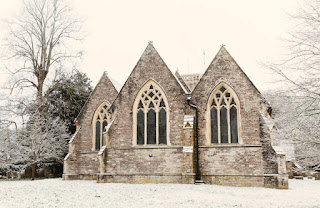'Now on the morning of Advent Sunday': Keble, the passage of the year, and Old High piety
In this extract from an Advent Sunday sermon on the 1662 gospel reading (Matthew 21:1-13), Keble both evokes the piety of the Prayer Book and gently reflects on the passing of another year, with a characteristically Old High emphasis - contra the Enthusiasts - on "little silent ways" in the Christian life.
Our very Prayer books seem to ask us, now on the morning of Advent Sunday, how we have used them during the year that is past. We have turned over their leaves regularly. Have our minds and hearts gone along with what we saw there? We have seemed to be following Jesus so far on His way. Have we behaved like those His first followers, whom He so graciously approved?
To be like them, we should have stripped ourselves of our precious garments, the things we most value, our own worldly lusts and fancies, and laid them at His feet, at least for the time that we were in Church. The thoughts that were most welcome and delightful to us, if they were not holy and religious thoughts, should have been diligently banished from our minds, when we were at our prayers here. And not only here, but wherever we were, it should have been a study and a joy to us to find out continually little silent ways of giving up something to our Saviour; of making some sacrifice, more or less, for His sake ...
Every morning and evening that we have gone to Church we have joined in Psalms, with the Jewish multitude which went before Christ, and in hymns and canticles with the Christian multitude which followed after Him. We joined with them in appearance, perhaps in voice: did we always try to join with them in heart also? The very stones, our Lord tells us, that is to say, the rude Heathen will cry out, if we hold our peace they will put us to shame at the last Day, by their greater diligence in their ignorant worship. But might they not well cry out, if they could know the real life and heart of some of us, even during this one year that is now drawing to an end? I say, might not even the stones cry out, could they know how unthankful we have been for mercies, how careless of warnings, how apt to please ourselves, how ready to blame others, how forgetful of many duties, how negligent of doing as we would be done by, how wanting in improvement of our time? These are the offerings for which He looks Who is our Saviour and our King, as He passes on His way in the midst of us, towards the true and heavenly Jerusalem, and casts His Eye round to see if we are following Him, and waiting on Him as we ought.
(The picture is of Keble's parish church, All Saints, Hursley, Hampshire.)




Comments
Post a Comment